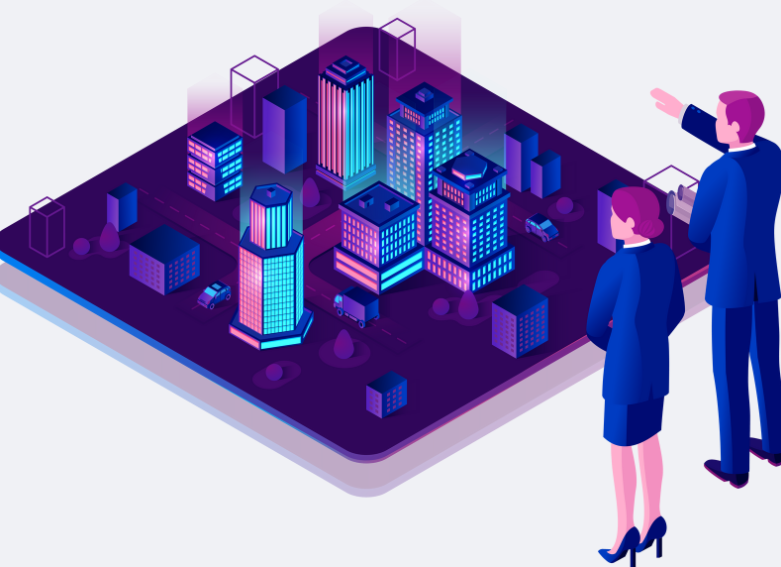In today’s rapidly advancing world, sustainability has become more than just a trend—it’s a necessity. As cities expand and energy consumption rises, integrating high tech building services has emerged as a crucial solution to ensure a sustainable future. One of the key components of this shift is smart energy management. Together, these technologies pave the way for eco-friendly, cost-effective, and energy-efficient buildings that are crucial for a better tomorrow. In this blog, we will explore how these innovations are revolutionizing building services and contributing to a sustainable future.
Why Smart Energy Management and High Tech Building Services Matter
Smart energy management and high tech building services are essential for addressing the growing challenges of energy consumption, environmental impact, and sustainability in the building sector. With global warming, rising energy costs, and the increasing demand for urban living spaces, it has become imperative for property developers and building managers to seek out energy-efficient solutions. By integrating high tech building services, such as intelligent building systems and smart energy management, properties can reduce their environmental footprint while saving on operational costs.
These solutions not only provide energy savings but also create more comfortable and productive spaces for their occupants. Smart energy management systems, integrated into high tech building services, enable real-time data monitoring, control over energy usage, and automation, driving efficiencies across various systems, from lighting to HVAC. As a result, more buildings are becoming “green” and energy-efficient, helping businesses reduce their carbon footprints while improving sustainability.
The Evolution of Energy Efficiency in Building Design
The evolution of energy efficiency in building design has been propelled by the growing demand for more sustainable and high-tech buildings. In the past, traditional systems were not designed with energy conservation in mind. However, as environmental concerns grew, there was a shift towards sustainable practices, leading to the integration of smart technologies in construction.
High tech building services have played a pivotal role in this transition. With the adoption of innovative solutions like smart thermostats, automated lighting, and intelligent ventilation systems, energy consumption has been optimized in buildings across the globe. In particular, companies like Advancer Smart Technology Pte Ltd. have been at the forefront of integrating smart energy management systems into buildings, driving the efficiency of HVAC systems, lighting, and even waste management.
This evolution has shifted the way buildings operate, moving from energy-hungry, manually controlled environments to smart, self-regulating spaces that automatically adjust energy use based on occupancy and environmental factors. This shift to intelligent building solutions marks a significant step towards achieving a sustainable and energy-efficient future.
Components of High Tech Building Services
High tech building services encompass a wide array of advanced technologies designed to improve energy efficiency, comfort, and convenience for occupants. Key components of these systems include:
- Smart HVAC Systems: These systems monitor and adjust heating, ventilation, and air conditioning to maximize energy efficiency. They can automatically adjust settings based on occupancy or time of day, ensuring optimal comfort while reducing energy waste.
- Building Automation Systems (BAS): BAS integrates all building systems into one central platform for easy management. With real-time data, building managers can make informed decisions about energy usage, security, and maintenance, improving operational efficiency.
- IoT Sensors for Predictive Maintenance: IoT-enabled sensors monitor the health of building systems such as elevators, lighting, and HVAC. By analyzing the data, these systems can predict potential failures before they occur, reducing downtime and repair costs.
- Energy Monitoring and Smart Metering: These solutions allow real-time monitoring of energy usage, helping property managers identify areas of inefficiency. Smart metering also enables the collection of data that can be analyzed to drive further energy-saving strategies.
- Renewable Energy Integration: Incorporating solar panels or other renewable energy sources into the building’s infrastructure helps lower reliance on the grid, reduce energy costs, and reduce a building’s carbon footprint.
Each of these components plays a critical role in shaping a sustainable future by reducing energy waste and enhancing the efficiency of high-tech building services.
Smart Energy Management: What It Looks Like in Practice
Smart energy management in high tech buildings involves the use of advanced software, sensors, and automation to optimize energy usage throughout the building. Through real-time energy monitoring, building systems can be adjusted on-the-fly to meet energy demands while reducing waste.
For instance, in a commercial building, a smart energy management system might monitor the temperature and lighting needs of different rooms based on occupancy. If a room is unoccupied, the system can automatically lower the temperature or turn off the lights, ensuring that energy is not being wasted. Similarly, intelligent HVAC systems can adjust their output based on weather conditions, occupancy, and time of day, optimizing energy use without compromising comfort.
Moreover, smart energy management solutions are increasingly integrating with renewable energy sources like solar panels, enabling buildings to generate and store their energy. In this way, buildings can become more self-sufficient, reducing dependence on external energy providers and helping to achieve net-zero emissions.
Advancer Smart Technology Pte Ltd. has been instrumental in implementing such energy-efficient technologies in buildings, helping companies streamline energy consumption, reduce operational costs, and improve sustainability.
Benefits of Smart Buildings for Businesses and Communities
Smart buildings powered by high tech building services provide several benefits for both businesses and communities. These benefits include:
- Cost Savings: By utilizing smart energy management systems, buildings can achieve significant reductions in energy consumption, leading to lower operational costs. For businesses, this means higher profit margins and reduced utility bills.
- Enhanced Comfort and Productivity: Automated systems that adjust lighting, temperature, and air quality improve the comfort of building occupants. Comfortable environments lead to increased employee productivity and improved tenant satisfaction in commercial properties.
- Sustainability and Environmental Impact: High tech building services help buildings reduce their carbon footprint. By optimizing energy use and integrating renewable energy sources, buildings contribute to environmental conservation and sustainability.
- Increased Property Value: Sustainable buildings with energy-efficient technologies are more attractive to buyers and tenants. As demand for green buildings rises, these properties often see a higher market value and occupancy rates.
- Regulatory Compliance: Governments and regulatory bodies are increasingly mandating energy efficiency standards for buildings. High tech building services help property owners meet these standards, ensuring compliance with local regulations.
These advantages make smart buildings a wise choice for business owners, property developers, and governments looking to create sustainable and profitable spaces for future generations.
Overcoming Barriers to Adoption
Despite the numerous benefits, several challenges still hinder the widespread adoption of high tech building services. These include:
- Initial Costs: The upfront investment in advanced building technologies, such as energy-efficient HVAC systems and automation software, can be substantial. However, the long-term savings often outweigh the initial costs.
- Technology Interoperability: Different building systems and technologies must be able to communicate with each other for optimal performance. Ensuring that all components work together seamlessly can be a challenge, but this is where companies like Advancer Smart Technology Pte Ltd. come in, offering solutions that integrate diverse systems into a unified platform.
- Workforce Training: A skilled workforce is required to operate, maintain, and troubleshoot these advanced systems. Investing in training is essential to ensure that building managers and maintenance staff are equipped to handle these technologies.
- Data Security and Privacy: With the integration of IoT and real-time data analytics, buildings must ensure that they have proper security measures in place to protect sensitive data. Cybersecurity is a crucial aspect of adopting high tech building services.
The Road Ahead: Trends and Future Innovations
Looking ahead, several trends are set to shape the future of smart energy management and high tech building services. These include:
- Artificial Intelligence (AI) and Machine Learning: AI will be used to predict energy demand, automate building operations, and provide personalized experiences for building occupants. Machine learning algorithms will continually optimize energy use based on data patterns.
- Blockchain for Energy Transactions: Blockchain technology can be used for secure energy trading, allowing buildings to exchange energy with each other and the grid in real-time.
- Smart City Integration: High tech building services will play a critical role in the development of smart cities. These cities will integrate IoT devices, renewable energy systems, and AI-powered infrastructure to optimize energy usage across entire urban areas.
- Digital Twins: Digital twins are virtual replicas of physical buildings. These digital models allow for real-time monitoring and simulation of building performance, providing actionable insights that can help improve energy efficiency and reduce operating costs.
The future of high tech building services is bright, with continuous innovation driving smarter, more sustainable buildings for generations to come.
Building a Sustainable Future with Smart Energy Management
Smart energy management and high tech building services are no longer just an option—they are an essential part of building a sustainable future. With the integration of advanced technologies such as intelligent automation, IoT sensors, and renewable energy systems, buildings can become more efficient, cost-effective, and environmentally friendly.
The role of companies like Advancer Smart Technology Pte Ltd. in implementing these solutions is crucial in ensuring that high tech building services are accessible and effective. By embracing these technologies, property developers, business owners, and building managers can create spaces that are not only energy-efficient but also contribute to a greener, more sustainable world.
As we look towards the future, the continued integration of smart technologies into building services will be a key driver of sustainability, helping us to build a more energy-efficient and environmentally responsible world.











